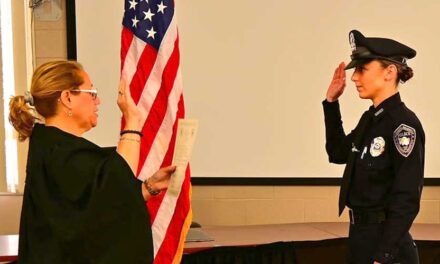Published in the January 21, 2016 edition
By BOB TUROSZ
NORTH READING — Unlike some communities, North Reading doesn’t have a big problem with abandoned residential properties but there are a handful of parcels out there from time to time that have become neglected and run down, usually by a bank or absentee owner.
Last week the Selectmen gave their approval to the town’s participation in the Abandoned Housing Initiative, a program run by the state Attorney General’s Office, that uses the enforcement authority of the State Sanitary Code to turn these properties around.
Director of Public Health Robert Bracey explained that when he first came to North Reading about four months ago, there were several complaints about abandoned properties with dilapidated, unsanitary conditions in town. In most cases these unoccupied, abandoned properties are bank–owned, he said, and the bank doesn’t care enough about their upkeep to keep them secure and in good repair.
Bracey suggested utilizing the Attorney General’s Abandoned Housing Initiative, as a response to these situations. This is a program in which the Attorney General’s Office works with the town to identify and seek out the delinquent owners of abandoned residential property and encourages them voluntarily to repair the properties and make them secure.
If the owner cooperates, the parties agree on a repair plan, which can be monitored. If the owner refuses, the AG’s attorneys will petition Woburn District Court to appoint a receiver to bring the properties up to code.
The Board of Health has already voted to move forward with this program, which applies only to residential properties.
This program would use the legal process to get these properties cleaned up and make the neighbors happy, Bracey said. There was an earlier meeting between Bracey, Town Administrator Michael Gilleberto and other town officials to properly vet the program and what it entails.
Bracey emphasized the targeted properties will be those that are unoccupied, bank owned and which the town has had trouble getting a response from the (usually absentee) owner.
Bracey gave the example of one property that was referred to him by the Building Commissioner last September. Bracey said the Building Commissioner had been working on a particular property for over a year. The property was having issues with illegal dumping, decaying food and garbage in the driveway and rodent infestation. “The property was basically a dumping ground and the neighbors had concerns and rightfully so.”
Bracey said the town took the property to court when they found out which bank owned the property and it wasn’t going to comply with getting the property back in shape.
“I think this is a good program. More and more often we are seeing these properties and these complaints.” The program uses the leverage of the Attorney General’s office rather than the town trying to “chase these people down,” Bracey added.
“We are not looking to target properties that are occupied or occupied by seniors who might have an issue. We can use our social services to try to address those issues and work with those folks.”
The process to be followed will be like this: The Board of Health will go out based on a complaint or referral and do a site assessment. The first step would be to cite the landlord or the bank and give them time under the housing code to correct the violations. If those violations aren’t corrected, it gives the Health Department the opportunity to bring in the AG’s office to appoint a receiver through Woburn District Court and that receiver would go to the court and get a budget to clean up that property.
The cost is assessed to the property owner or the bank when the property is sold. There is no cost to the town other than the Health Director’s time, he said.
Putting the property back in compliance with the sanitary code means it is no longer a threat to public health and safety, no longer a threat to the property values of the neighborhood and puts the land back on the town’s tax rolls.
Selectmen Michael Prisco said this is a worthwhile program and also emphasized it’s targeted only at housing properties. There are other programs out there for abandoned commercial properties, he said.
Local Realtor John Magazzu commended Bracey for taking on these challenges. He said he helped a property on Old Andover Road to “get well again” with the help of Building Inspector Jim DeCola and felt the receivership program can help the process regarding a lot of these abandoned properties.
“A lot of these are short sales and wind up being bank owned,” he said. Magazzu offered his services in helping to analyze the properties.
After some further discussion, the Board voted unanimously to authorize the town administration to participate in the Attorney General’s Receivership Program.




